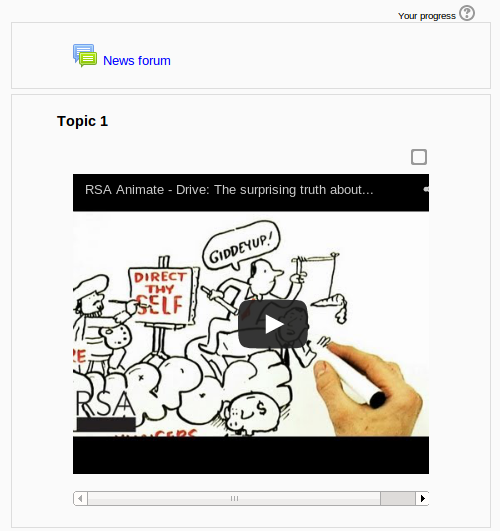Why would you be interested in niche marketing? Because marketing to a very specific audience is a lot easier – and cheaper! – than using a scatter shot approach. Working in a niche means you will be an expert sooner. This is because all your customers face the same kind of problems that they want to see solved by your training sessions. In no time at all, you’ll be able to advise new customers based on what you’ve learned from your existing customers.
Now, put the advice online, publish recommendations on your website or blog about it. Wait, putting advice online for all to see? Completely for free you say? Well, yes. You are a trainer, your added value comes from your face-to-face training sessions. Sure, people could implement your advice without your involvement, but they wouldn’t be completely sure if they did it the right way. So don’t be afraid that people will take your advice and run without paying for it.
If you’re really specialized, your online recommendations will definitely be valuable to all people who fit in your niche. Let’s look at an example. Suppose you’re a trainer who decides to specialize in presentation training. From that moment on, you no longer have to compete with all the other “general” trainers.
 I mean, look at it from the customer’s perspective. I’m a CFO and I want to prepare my quarterly results presentation. Who do I turn to? I’ve got two ads in front of me: one is from Ted the Trainer – for all your training needs. The other is from you, the trainer who is specialized in presentations. I’ll pick you over Ted of course because you’re answering my specific need.
I mean, look at it from the customer’s perspective. I’m a CFO and I want to prepare my quarterly results presentation. Who do I turn to? I’ve got two ads in front of me: one is from Ted the Trainer – for all your training needs. The other is from you, the trainer who is specialized in presentations. I’ll pick you over Ted of course because you’re answering my specific need.
It’s even better: nowadays everybody looks on the Internet. And there, I don’t even get to see Ted’s ad, because I’ve typed in “presentation training” in Google. I get to see your ad – but only if you’re specialized in what I need; if I’m a customer in your target niche.
How to Find a Profitable Niche
If you’re already specialized and your training business is running well, great, your niche has been validated. You can skip this section. But if you are still casting a wide net, stay tuned.
Where do you find a profitable niche? On the Internet of course. Start with some customers you’ve had pleasant experiences with. Who are they? What are they doing? Also important: did they pay you well? Once you’ve got a specific niche in mind, your first task is to find out if it’s the right fit for you. This is where the Internet comes in.
Is the Market Large Enough?
Go online and simply check the Yellow Pages website (or the equivalent in other countries), google for “trends and figures” in combination with the name of your niche. See if the niche is large enough to support a trading magazine. If you actually decide to pursue this niche, you may even want to place ads in the trading magezine, later on (after all, not all marketing needs to proceed through the Internet).
Is There an Inexpensive Way to Reach Them?
Can they be reached by building an audience such as a mailing list, or a blog, or through search engine optimization? We’ll discuss these topics in more detail in other blog posts. You may also want to consider looking at forums, trade organizations’ websites and LinkedIn groups. What are the advertising prices there?
Do They Have Problems Which You Can Solve?
Reaching out to a target audience is easier if you are able to actually help them. So, revisit the forums, blogs and LinkedIn groups of your niche and write down all the issues they’re discussing. Is there a pattern? Do they have problems which you can solve?
Create an Audience
Once you have chosen and validated a niche, you need to reach out to them. Help out your customers. Build trust and an expert reputation by consulting your customers in a very real way, with advice derived from your experiences with existing customers.
Use your blog, website and mailing list to actually present the advice. You can also go out and post tips on forums, LinkedIn groups and blogs from the members of your target audience. From there, you can also link to your own blog, when appropriate. Just remember one thing: you cannot be a specialist in everything, not even in a niche market. So choose your topics with care and empathy.

